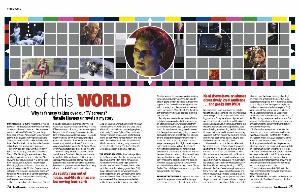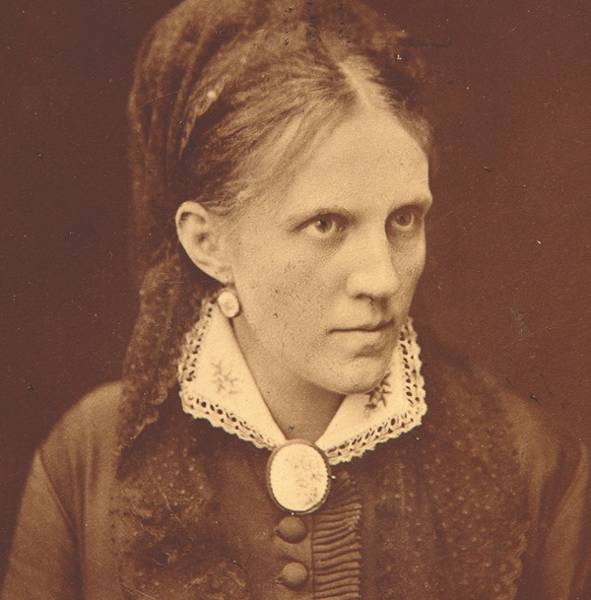Summer used to be the worst time of year for television – endless repeats, enlivened by nothing other than silly season news and the occasional near-homicide on Big Brother. This year, things have been different. Anyone with sense has been staying in on a Wednesday night to watch the coolest show on television – Heroes. Rationalists have often liked their cultural fixes to be fantastical, and now it’s a growing phenomenon.
 For every good TV show which is set firmly in the “real” world (say The Sopranos, Without a Trace or The West Wing) there are three or four which are pure science fiction, or fantasy. No one who likes television could in all conscience have missed Heroes, Buffy the Vampire Slayer, Firefly, Angel, Battlestar Galactica, Lost or even, if you’re feeling patriotic, Dr. Who. Supernatural and extraterrestrial television has stopped being only for people who like to dress up with pointy ears, ideally at a convention with like-eared friends, and become the mainstream.
For every good TV show which is set firmly in the “real” world (say The Sopranos, Without a Trace or The West Wing) there are three or four which are pure science fiction, or fantasy. No one who likes television could in all conscience have missed Heroes, Buffy the Vampire Slayer, Firefly, Angel, Battlestar Galactica, Lost or even, if you’re feeling patriotic, Dr. Who. Supernatural and extraterrestrial television has stopped being only for people who like to dress up with pointy ears, ideally at a convention with like-eared friends, and become the mainstream.
The rise in popularity of sci-fantasy on TV must be partly because programmes set in the real world have become increasingly limited in scope. If they don’t star policemen, doctors or (at a push) lawyers, no one’s buying. The rewards for this kind of drama done well are immense – CSI (in its many locations) is now the most watched programme in the world. But shows that try to move away from these fields risk a swift execution – Aaron Sorkin’s follow-up to The West Wing, Studio 60 on the Sunset Strip, lasted less than a year, and Tim Minear’s long-awaited show about a trans-America race, Drive, had a lifespan which made a mayfly look like Methuselah. But the tropes of criminal, medical and legal dramas have been reproduced so many times that the boundaries between programmes seem to have faded away almost completely. It’s hard to watch Boston Legal, for example, without wondering when Ally McBeal is going to walk in, and one rarely sees a televisual crime that hasn’t previously perplexed, albeit briefly, Dick Van Dyke in Diagnosis Murder. As reality runs out of ideas, even less fantastical shows are borrowing from sci-fantasy – the first series of the otherwise down-to-earth Veronica Mars is punctuated by the ghostly presence of her murdered friend, Lily. And that’s before The Lovely Bones appears in cinemas near you.
The second reason for the sudden proliferation of these shows is that the nerds are getting powerful. Joss Whedon had to win an Oscar nomination for his Toy Story script before he had the clout to make a TV series, but once he had it, he made the defining genre show, Buffy. Russell T Davies worked his way up through children’s television and Coronation Street before he made Queer as Folk for Channel 4. Once he had cemented his writer’s reputation, he held out for the opportunity to regenerate Dr Who. Nerd shows tend to have an almost obsessively loyal audience (Galaxy Quest, the film parody of sci-fi geeks, is often described by those who appear at fan conventions as being pretty much a documentary), and they value them accordingly – geeks buy DVDs, after all. And then they buy them again when you package them in a different box.
But why are these audiences so loyal? What is it about a community set in the future, or in an alternative universe, which captures them so completely? It’s not just a TV phenomenon – think of the excitement that greeted the news that George Lucas was finally going to make the prequels to Star Wars (albeit that it was followed by one long sigh of disappointment when it turned out that he had forgotten to create a single character you didn’t slightly want to punch in the face). Jacqueline Wilson, the children’s novelist rightly celebrated for her sweet but gritty tales of children in care homes, or shuttled between divorced parents, is this country’s most borrowed author from public libraries. Yet you can’t imagine the bookshops staying open till midnight because readers can’t wait another second to find out what happens next to Tracey Beaker. That only happens when you bring in the big guns of the boy wizard.
Perhaps the truth is that geeks have been ahead of the game – sci-fantasy is enjoying a renaissance because it is the natural home for big, epic sagas – long-running series, with the fate of humanity depending on a few individuals and starring the occasional monster with alarming proboscis. Surely we all want big themes for our fiction? Epic is the oldest form of literature, precisely because we have always wanted to lose ourselves in the world of the supernatural. Audiences listening to Homer sing the Iliad didn’t wait till he got to the end and then say it was ok, they supposed, but they wished the gods and heroes sections had been toned down a bit, and there had been more about tending sheep.
Sci-fantasy has become the natural home for big political issues – Battlestar Galactica, a worlds-apart remake of the creaky ‘70s show, is one of the most sophisticated programmes on television, a clever, critical representation of American foreign policy and homeland security, set on a spaceship where the occupants live in constant fear of attack from an enemy who looks exactly like them. Heroes, currently showing on BBC2, deals with the fear of a nuclear explosion devastating New York – only a band of disparate, and initially reluctant, superheroes can save us. So far, so comic book. Only, these superheroes include a single mom with a split personality who strips for a living, a cheerleader who can’t die, and an artist who can paint the future, but only when high on smack. The underlying theme is that some people really are special (not in the therapy sense, but actually), and that those people might just be able to make the world a better place. Firefly and its spin-off film Serenity are set in a future where English and Chinese are used almost interchangeably, as the two great superpowers of the 21st century have expanded into space. Our heroes spend their time just trying to survive in a universe where the government wants to have control over everything.
Sci-fantasy has always acted as a metaphor for writers to comment on the real world – the Twilight Zone episode, “The Monsters Are Due on Maple St”, made in 1960, is an allegory for the American attitude to suspected Communists: a shadow passes overhead, then the power and telephones fail and cars won’t start. Suspicion falls on one man, and when a neighbour tries to defend him, it falls on him instead. An alien invasion is thought to be behind it all. Soon, accusations are flying in every direction, a man is shot and chaos descends. Martians are then shown to be congratulating themselves on how easy it is to turn humans against each other.
The episode was remade in 2003, with the word “alien” replaced by the word “terrorist”. You won’t find that in ER. ■

